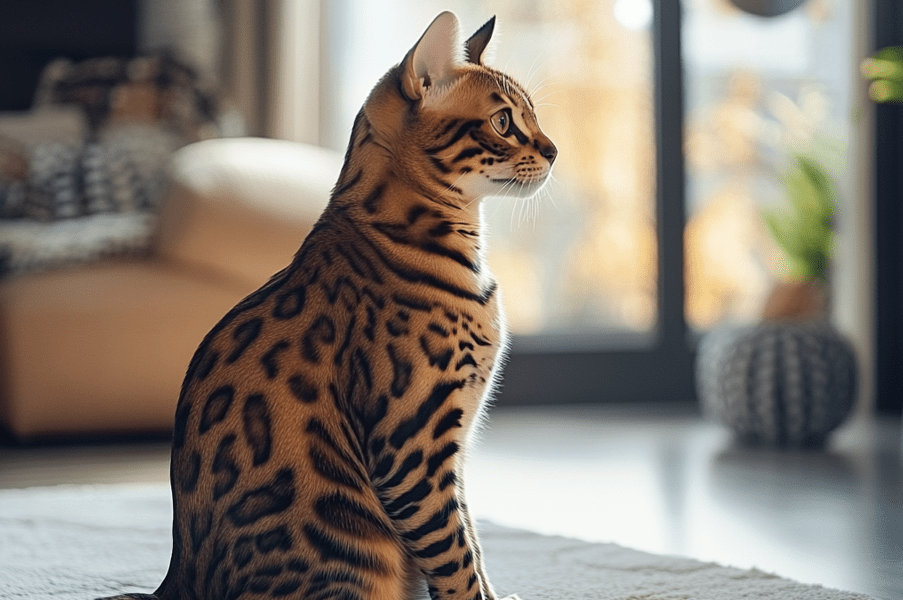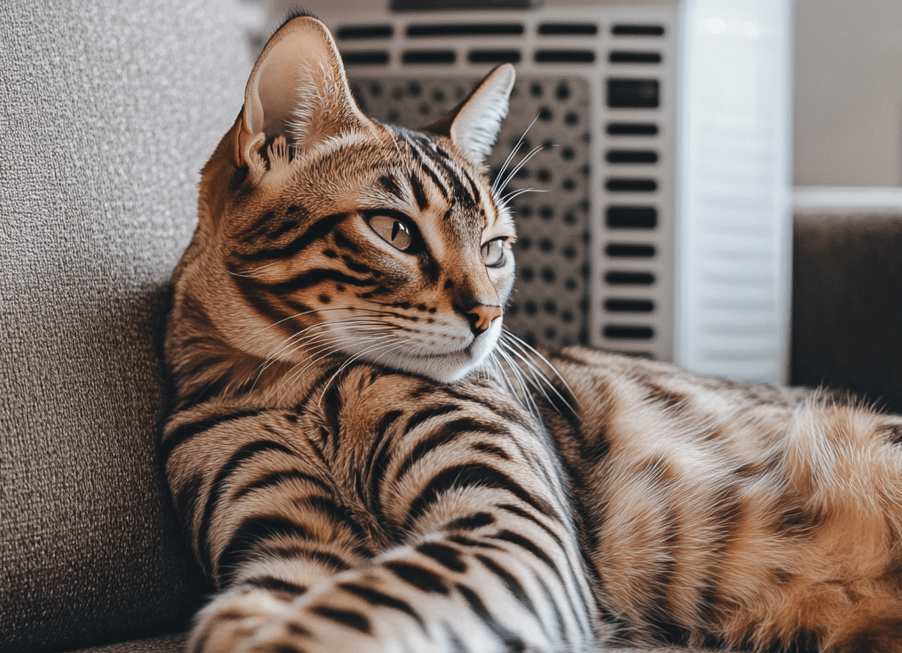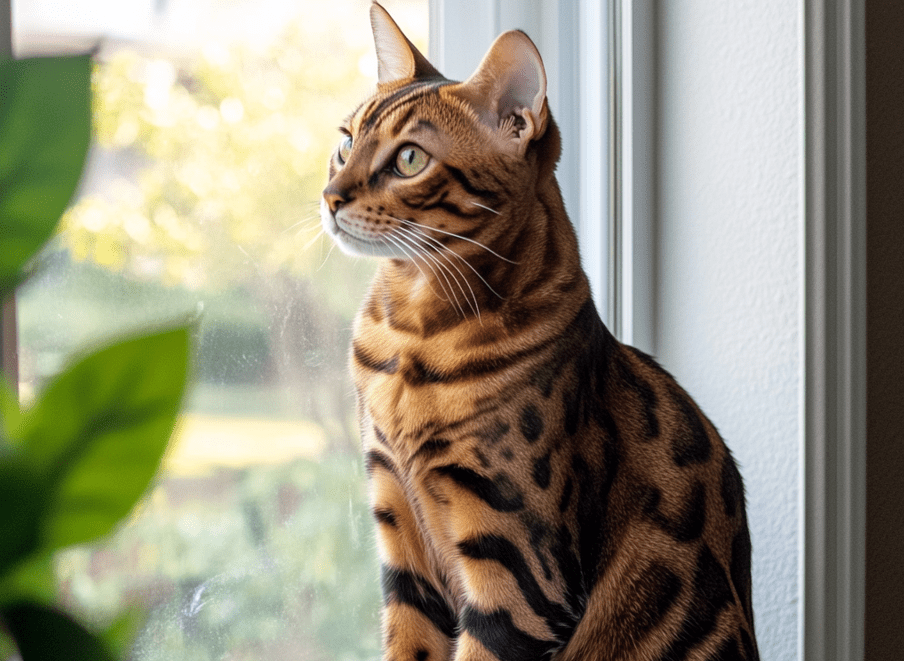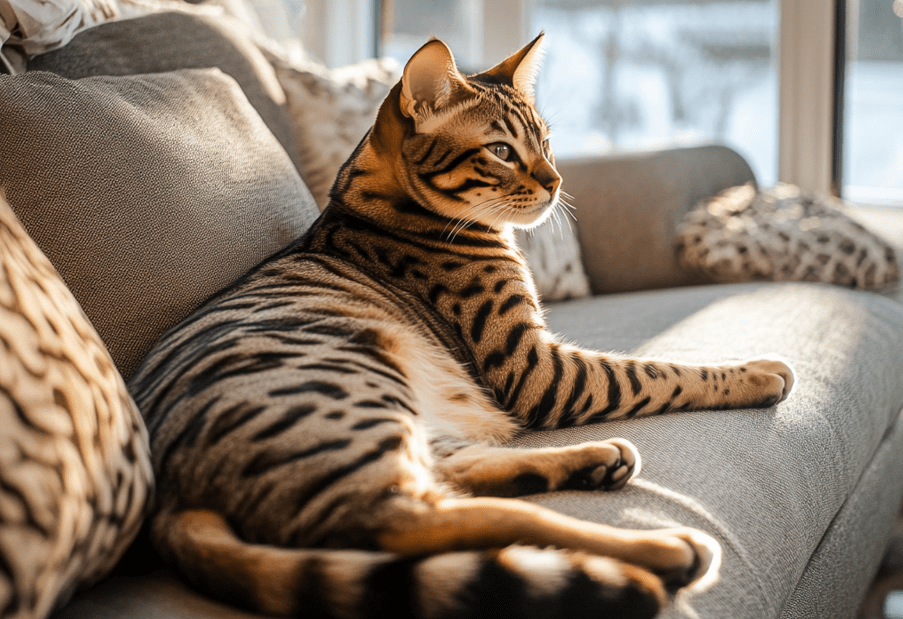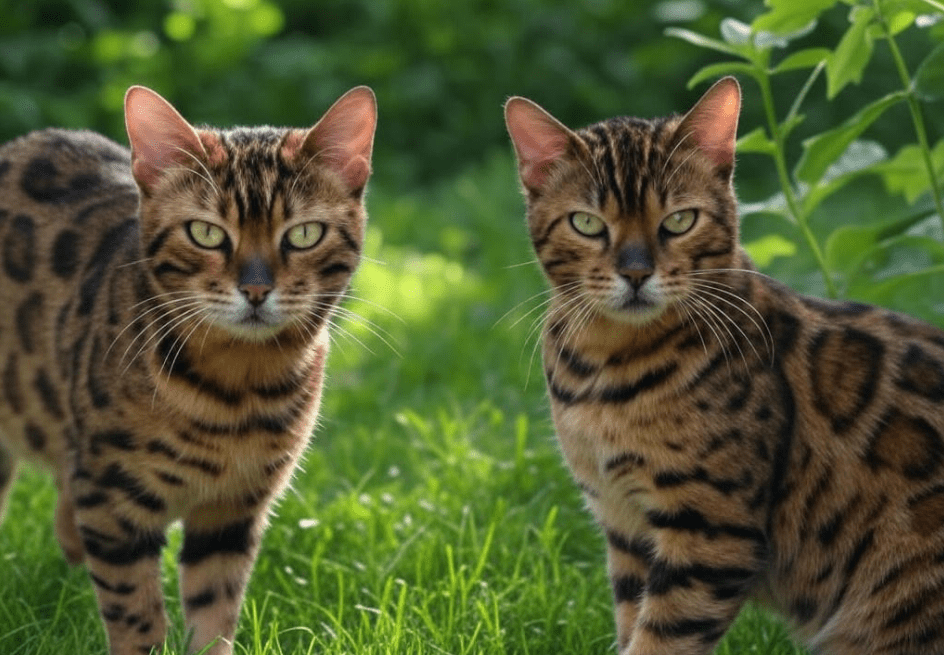
Bengal cats are known for their stunning, leopard-like coats and energetic personalities, but maintaining their health goes beyond their striking appearance. Dental care for Bengal cats is a critical aspect of their overall well-being, yet it’s often overlooked by pet owners. Poor dental hygiene can lead to painful tooth issues, costly veterinary bills, and even systemic health problems. This comprehensive guide will walk you through everything you need to know about preventing dental problems in your Bengal cat at home, ensuring their pearly whites stay healthy and strong.
Why Dental Care Matters for Bengal Cats
Dental health is vital for Bengal cats because their active, carnivorous nature relies on strong teeth for eating, playing, and grooming. Without proper care, plaque and tartar can build up, leading to gingivitis, periodontal disease, and tooth loss. These conditions aren’t just painful—they can affect your cat’s overall health, potentially causing kidney, liver, or heart issues due to bacterial spread from the mouth.
Bengal cats, with their high energy and curious nature, may also be prone to chewing on inappropriate objects, which can damage their teeth. By prioritizing dental care, you can help your Bengal maintain a healthy mouth, avoid discomfort, and enjoy a higher quality of life.
Common Dental Problems in Bengal Cats
To effectively prevent tooth issues, it’s essential to understand the dental problems Bengal cats may face:
Plaque and Tartar Buildup: Plaque, a sticky film of bacteria, forms on teeth after eating. If not removed, it hardens into tartar, which is more difficult to clean and irritates gums.
Gingivitis: This is inflammation of the gums caused by plaque buildup. Symptoms include red or swollen gums and bad breath.
Periodontal Disease: Untreated gingivitis can progress to periodontal disease, affecting the tissues supporting the teeth. This can lead to tooth loss and bone damage.
Tooth Resorption: A painful condition where the tooth structure breaks down, common in cats, including Bengals.
Fractured Teeth: Bengals’ playful nature may lead to chewing on hard objects, risking tooth fractures.
Stomatitis: A severe inflammation of the mouth and gums, sometimes seen in Bengals, requiring veterinary intervention.
Recognizing these issues early and taking preventive measures at home can save your Bengal cat from pain and costly treatments.
Signs of Dental Problems in Bengal Cats
Being proactive about dental care starts with knowing what to look for. Watch for these signs that your Bengal may have dental issues:
-
Bad breath (halitosis)
-
Difficulty eating or dropping food
-
Excessive drooling
-
Pawing at the mouth
-
Red, swollen, or bleeding gums
-
Yellow or brown buildup on teeth
-
Loose or missing teeth
-
Changes in behavior, such as irritability or reduced playfulness
If you notice any of these symptoms, consult your veterinarian promptly. However, the goal is to prevent these issues through consistent at-home dental care.
At-Home Dental Care Practices for Bengal Cats
Preventing tooth issues in Bengal cats doesn’t require advanced skills—just consistency and the right tools. Here’s a step-by-step guide to maintaining your Bengal’s dental health at home.
1. Brushing Your Bengal Cat’s Teeth
Brushing is the gold standard for preventing plaque buildup. While it may sound daunting, most Bengal cats can adapt to tooth brushing with patience and positive reinforcement.
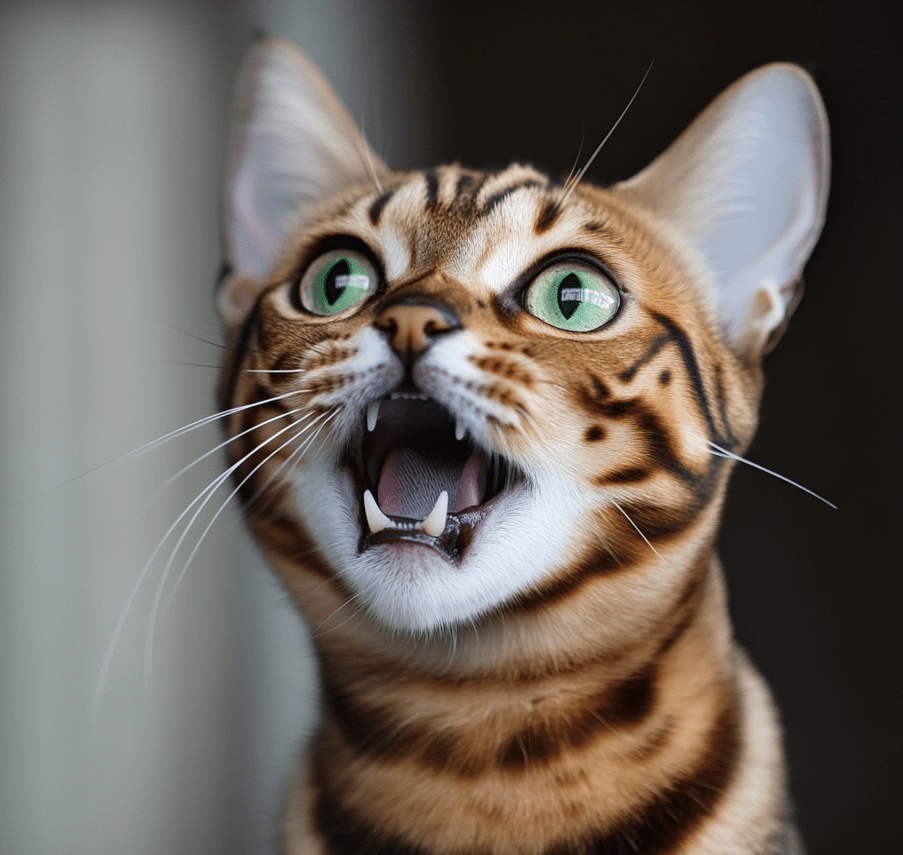
How to Brush Your Bengal’s Teeth:
Choose the Right Tools: Use a pet-safe toothbrush (soft-bristled or finger brush) and enzymatic cat toothpaste. Never use human toothpaste, as it’s toxic to cats.
Start Slowly: Introduce the toothbrush and toothpaste gradually. Let your Bengal sniff and lick the toothpaste to get accustomed to the flavor.
Build a Routine: Begin by gently touching your cat’s mouth, then progress to lifting their lips and brushing a few teeth at a time. Aim for daily brushing, but even 2–3 times a week can make a difference.
Make It Positive: Reward your Bengal with treats, praise, or playtime after brushing to create a positive association.
Pro Tip: Bengals are intelligent and respond well to training. Use their curiosity to your advantage by making brushing a fun, interactive experience.
2. Dental Diets and Treats
Feeding your Bengal cat a diet that supports dental health can reduce plaque and tartar buildup. Look for foods and treats specifically designed to promote oral hygiene.
Veterinary Dental Diets: Some prescription diets, like Hill’s Science Diet Oral Care or Royal Canin Dental, have kibble designed to scrape plaque off teeth as your cat chews.
Dental Treats: Treats like Greenies Feline Dental Treats are formulated to clean teeth and freshen breath. Always check with your vet to ensure treats fit your cat’s dietary needs.
Raw Diets: Some Bengal owners opt for raw or freeze-dried diets, which can mimic the natural chewing action of wild cats, helping to keep teeth clean. Consult your vet before switching to a raw diet.
Note: While dental diets and treats are helpful, they’re not a substitute for brushing or professional cleanings.
3. Water Additives and Oral Gels
For Bengals who resist brushing, water additives and oral gels can be a great supplement. These products contain enzymes or ingredients that reduce plaque and bacteria in the mouth.
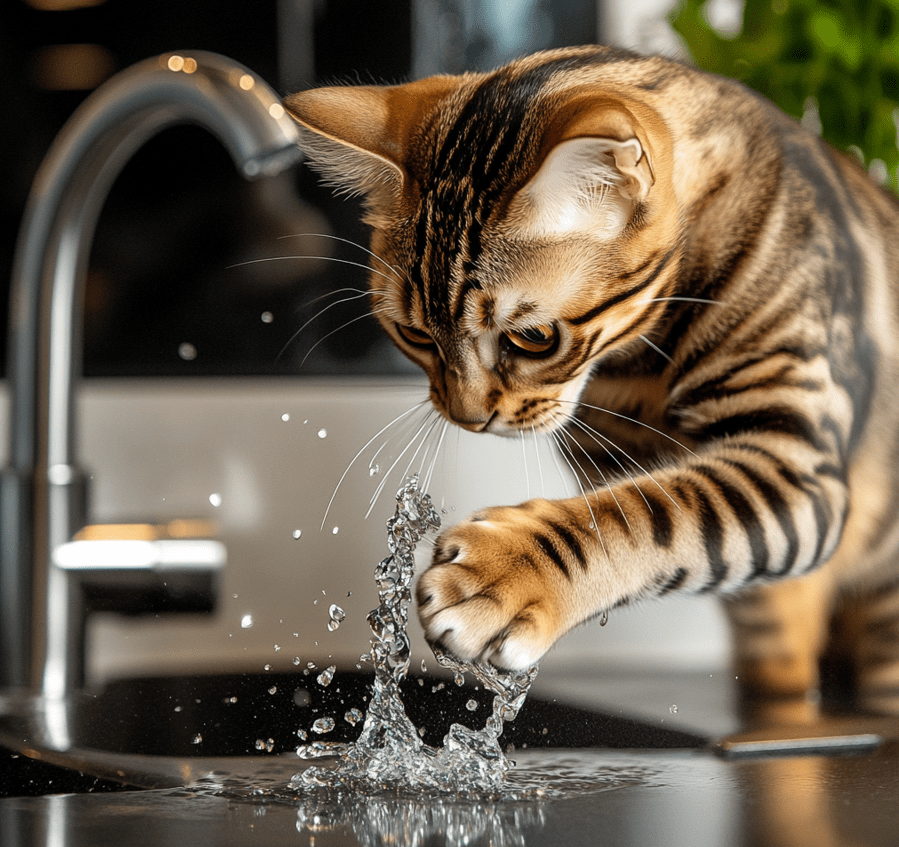
Water Additives: Products like TropiClean Fresh Breath Water Additive can be added to your cat’s drinking water to fight plaque and freshen breath.
Oral Gels: Gels like Oratene Brushless Oral Gel can be applied to your cat’s gums to reduce bacteria without brushing.
Always choose vet-approved products and follow the instructions carefully to ensure safety and effectiveness.
4. Dental Toys and Chews
Bengal cats love to play, and dental toys can double as fun tools for oral health. Look for toys designed to massage gums and scrape plaque, such as:
-
Rubber or silicone chew toys
-
Rope toys for chewing
-
Catnip-filled toys that encourage chewing
Caution: Avoid toys that are too hard, as they can damage teeth. Supervise playtime to ensure your Bengal doesn’t swallow small parts.
5. Regular At-Home Inspections
Make it a habit to check your Bengal’s mouth weekly. Gently lift their lips to examine their teeth and gums for signs of plaque, redness, or swelling. Regular inspections help you catch problems early and adjust your dental care routine as needed.
The Role of Professional Veterinary Care
While at-home care is essential, professional veterinary cleanings are a critical part of your Bengal cat’s dental health. Here’s what to expect:
Veterinary Dental Cleanings
Most Bengal cats need a professional cleaning every 1–2 years, depending on their dental health. During a cleaning, your vet will:
-
Remove tartar and plaque using ultrasonic scaling
-
Polish teeth to smooth surfaces and prevent future buildup
-
Examine for signs of disease or damage
-
Perform X-rays if needed to check for hidden issues
These cleanings require anesthesia, so discuss any concerns with your vet beforehand.
When to See a Vet
Schedule a vet visit if you notice signs of dental problems or if it’s been over a year since your Bengal’s last checkup. Regular dental exams can catch issues before they become severe, saving your cat from pain and you from expensive treatments.
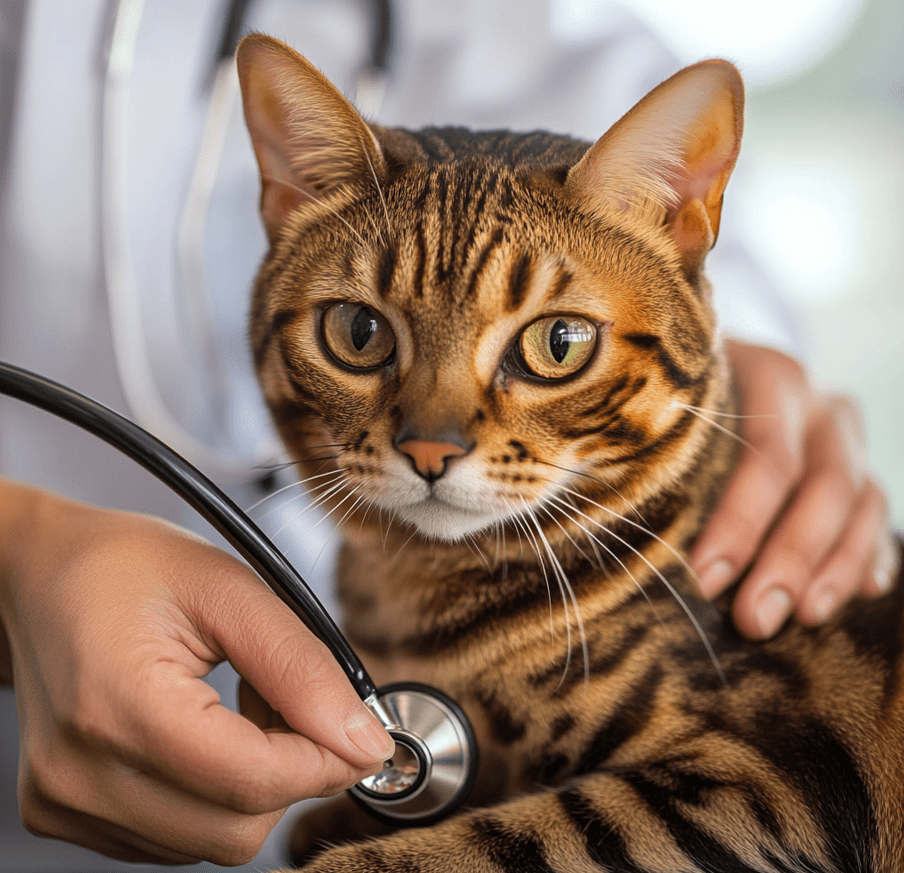
Creating a Dental Care Routine for Your Bengal Cat
Consistency is key to preventing tooth issues. Here’s a sample weekly dental care routine for your Bengal:
Daily: Brush your cat’s teeth (or at least 3–4 times a week).
Daily: Provide dental treats or a dental diet.
Daily: Add a vet-approved water additive to their drinking water.
Weekly: Inspect your Bengal’s mouth for signs of issues.
Weekly: Offer dental toys for chewing and play.
Annually: Schedule a veterinary dental checkup and cleaning.
Adjust this routine based on your cat’s needs and your vet’s recommendations.
Myths About Bengal Cat Dental Care
There are several misconceptions about feline dental care that can lead to neglect. Let’s debunk a few:
Myth: Cats don’t need dental care because they clean their own teeth. Truth: While chewing can help, it’s not enough to prevent plaque and tartar buildup.
Myth: Only older cats have dental problems. Truth: Dental issues can start as early as 1–2 years of age, especially in breeds like Bengals.
Myth: Dry food alone keeps teeth clean. Truth: While some kibble can help, it’s not a substitute for brushing or professional care.
Understanding these truths empowers you to take proactive steps for your Bengal’s dental health.
Tips for Success with Bengal Cats
Bengal cats are unique, and their spirited personalities can make dental care a bit of a challenge. Here are some Bengal-specific tips:
Leverage Their Intelligence: Bengals are quick learners. Use training techniques to make dental care a game or routine they enjoy.
Burn Off Energy First: A tired Bengal is more likely to cooperate. Engage them in play before attempting to brush their teeth.
Be Patient: Bengals can be stubborn. If they resist, try again later rather than forcing the issue, which could create negative associations.
The Long-Term Benefits of Dental Care
Investing time in your Bengal cat’s dental care pays off in many ways:
Improved Health: Healthy teeth reduce the risk of systemic issues like heart or kidney disease.
Cost Savings: Preventive care is far less expensive than treating advanced dental problems.
Better Quality of Life: A pain-free mouth means a happier, more playful Bengal.
Stronger Bond: Regular dental care routines strengthen the trust between you and your cat.
By making dental care a priority, you’re giving your Bengal the best chance at a long, healthy, and vibrant life.
Conclusion
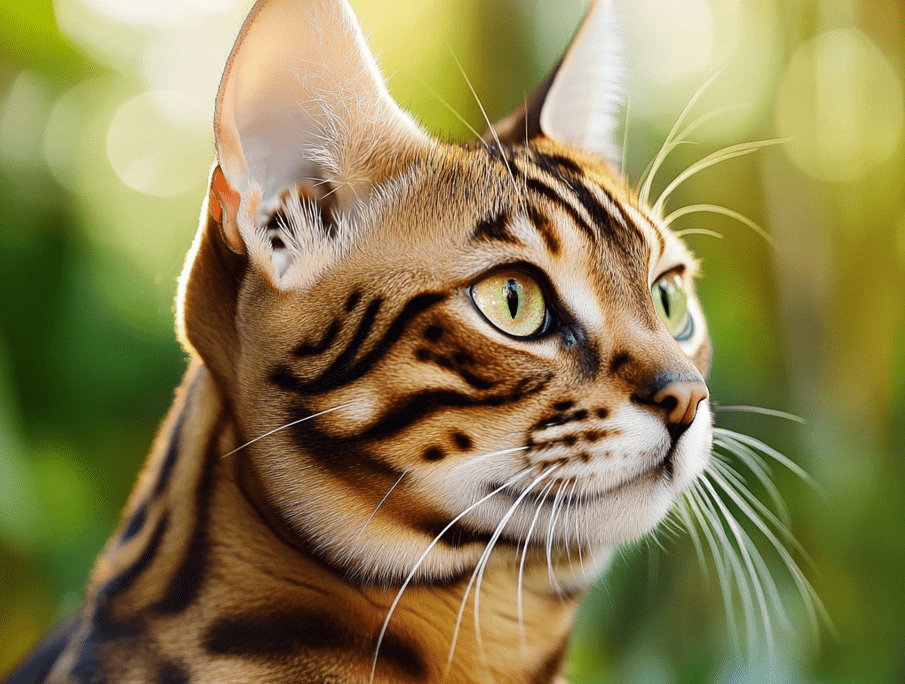
Dental care for Bengal cats is an essential part of responsible pet ownership. By brushing their teeth, offering dental diets and treats, using water additives, and incorporating regular vet checkups, you can prevent tooth issues and keep your Bengal’s smile bright. Start small, be consistent, and use your Bengal’s intelligence and playfulness to make dental care a positive experience. With the right approach, you’ll ensure your Bengal cat enjoys a healthy mouth and a happy life for years to come.
For personalized advice, consult your veterinarian to create a dental care plan tailored to your Bengal’s needs. Your furry friend will thank you with purrs, playful leaps, and a dazzling smile!

